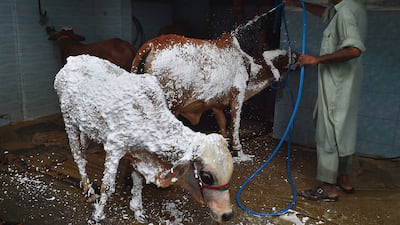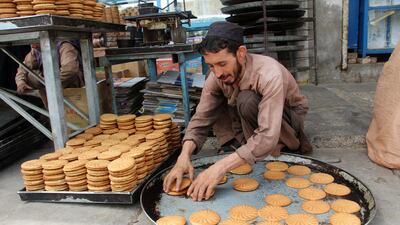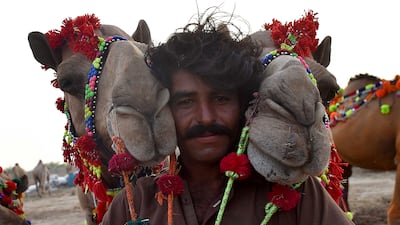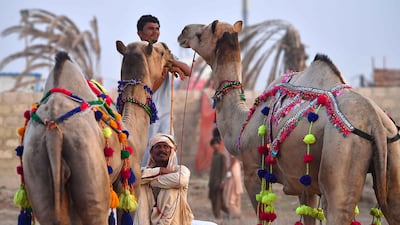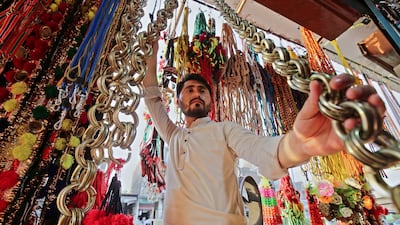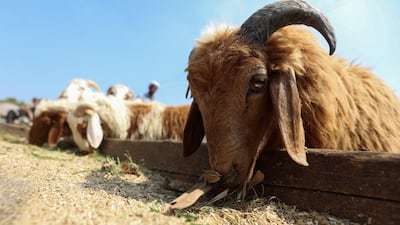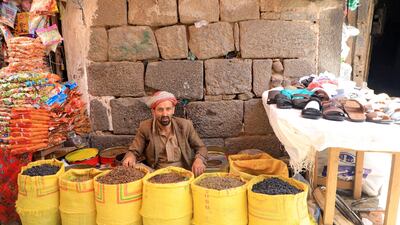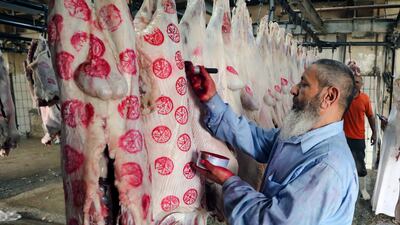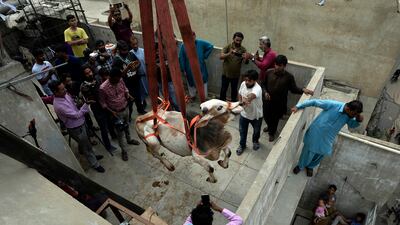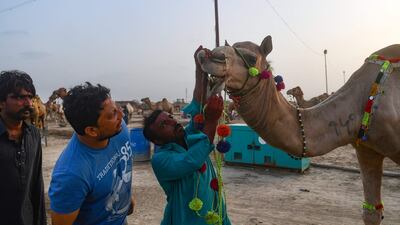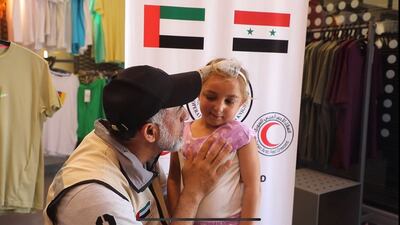Read the latest updates on the Hajj pilgrimage here
Saudi Arabia has completed slaughterhouse preparations ahead of Eid Al Adha, which begins on Wednesday.
Authorities have secured all ports of access and entry into the holy city of Makkah, and are prepared to begin the careful examination of livestock.
The Ministry of Environment on Monday said that 2.3 million “heads of cattle were cleared” this week.
Saudi authorities are ensuring cattle are free from disease to preserve the health of residents and pilgrims.
Muslims around the world celebrate the first day of Eid Al Adha with animal sacrifices, most commonly sheep, to honour the Prophet Ibrahim's willingness to sacrifice his son to God.
Ghaleb Al Saedi, director general of the Waqa Centre Branch in Makkah Region, explained that seven ports have been equipped with emergency teams and a squad to monitor markets and slaughterhouses in the holy city.
Operations at slaughterhouses are overseen by teams from by the Ministry of Environment, Water and Agriculture who work to examine livestock, monitor breaches of the agriculture and animal welfare systems, and verify health certificates.
Sixteen teams are working under plans from the National Centre for the Prevention and Control of Plant Pests and Animal Diseases in Makkah for this year's Hajj season.
Officials said strong health measures are in place to control any outbreak and to reduce airborne diseases by monitoring imported livestock to reduce the risk of disease.
The Ministry of Environment, Water and Agriculture in Makkah has also approved the work plan for slaughterhouses in Jeddah.
Authorities have been monitoring the development of slaughterhouse facilities, including technical and health requirements, the distribution of labour and butchers, work schedules, equipment, and waste disposal methods.
The ministry has aimed to provide the best services by setting up the Jeddah slaughterhouse to the east of the main motorway and in the south of the governorate.
Only approved slaughterhouses will be able to receive sacrifices during the days of Eid Al Adha and will operate regularly from after fajr prayer until 8pm.
Jeddah slaughterhouses employ nine veterinarians, three veterinary assistants, four supervisors and observers, 275 butchers and 344 other workers.
Licensed kitchens will also be able to slaughter only during the days of Eid Al Adha, provided they have the necessary permits and are in accordance with specific requirements.
According to the Saudi Press Agency, the capacity of Jeddah slaughterhouses is 5,000 head per shift.
For those who would prefer not to view the process of live slaughter, the national platform Adahi is available for residents' sacrificial needs.
The project is managed by the Islamic Development Bank and streamlines pilgrims' performance of the Eid Al Adha sacrifice rituals. It also oversees the distribution of the meat to those in need.
The project was launched in 1983 and is supervised by government agencies.
International pilgrims can also use the website to make their sacrifices.
Adahi joined forces with the electronic portal of Ministry of Hajj and Umrah, Al Rajhi Bank, the Ehsan platform, Saudi Post, Al Bilad Bank and the Haji and Mutamer’s Gift Association to allow pilgrims as well as Muslims all over the world to make their sacrifices.







